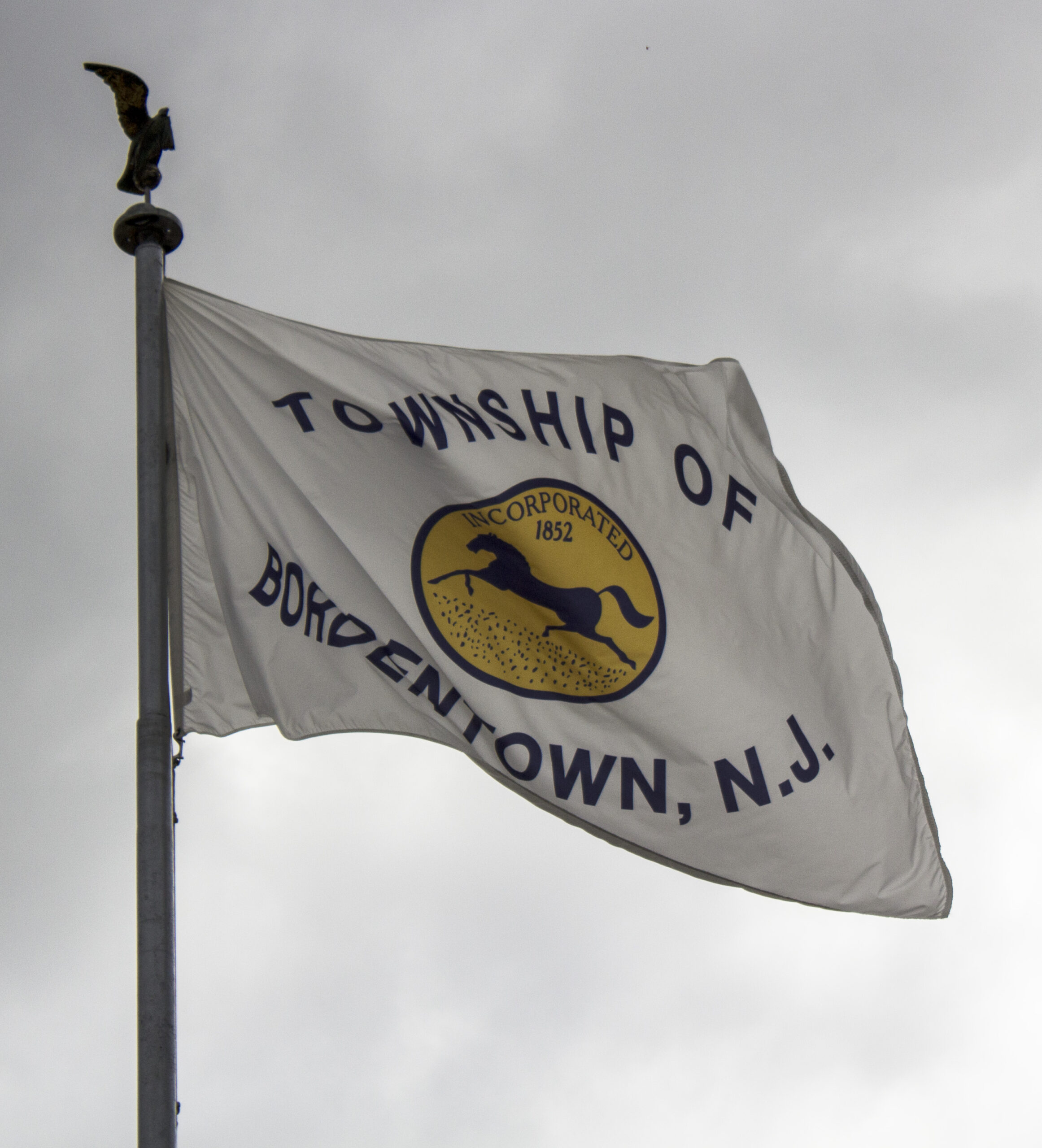The Township Committee in Bordentown Township has adopted a $14.58 million municipal budget and spending plan for 2019.
Municipal officials voted unanimously to adopt the budget during a meeting on April 8.
The township’s residential and commercial property owners will pay $6.54 million in property taxes to support the municipal budget. Other revenues will make up the balance of the spending plan.
According to township officials, the municipal tax rate of 58 cents per $100 of assessed valuation for 2019 represents an increase of 1.7 cents per $100 from 2018. Officials said that between 2013-18, the municipal tax rate increased one cent per $100 of assessed valuation.
The average home in the township is assessed at $241,875 and the owner of that home will pay $1,424 in municipal taxes in 2019, which officials said is about $40 more than 2018.
Municipal taxes are one item on a property owner’s total tax bill, which also includes taxes paid to the Bordentown Regional School District, to Burlington County and to a fire district.
Municipal officials said the total tax levy in Bordentown Township to support all of those taxing entities – the municipality, the school district, the fire district and the county – would be $40.87 million in 2019.
Officials said the 2019 municipal budget needed to account for rising costs for statutory pension obligations, health benefits, debt service and contractual salary commitments.
The budget also includes capital funds, which officials said will be allocated for continued street paving, parks and recreation improvements, and other infrastructure projects.
In the category of debt service, in 2018, the township paid $1.68 million in debt service.
For 2019, officials were planning to appropriate $2.11 million for debt service, according to Township Administrator Michael Theokas.
Theokas said that after reviewing the municipality’s financial situation and surplus account, the professionals recommended making an additional debt service payment of $970,000, which brings the total debt service payment for 2019 to $3.08 million.
“We were able to (make the additional payment) because of the strong surplus we had this year due to redevelopment tax abatements and payment in lieu of taxes (PILOT) payments, which we do not anticipate as regular revenue in the budget,” Theokas said.
“Our chief financial officer, Jeff Elsasser, and I consulted with our bond counsel and financial advisers prior to recommending the (additional payment) to the Township Committee. Our professionals considered this sound financial practices and planning, especially with an eye toward future budget stability and debt management,” he said.
In 2018, the Township Committee adopted a budget that totaled $13.13 million and collected $6.28 million in the local tax levy.
At a meeting on Feb. 25 when officials discussed the 2019 budget, Elsasser explained the reasoning behind the increase in the tax levy from $6.28 million in 2018 to $6.54 million in 2019 – an increase of $260,000.
Elsasser said the township went from using $2 million from surplus as revenue in the budget to $1.2 million. The use of less money from surplus necessitated a small increase in the tax levy.
“We want to keep it as flat as possible,” Elsasser said. “We are very confident that doing this slight increase (in the tax levy) this year is going to allow us to maintain a significant level of service that residents have grown to expect for all of the new developments that are coming in, hopefully for years to come, barring any unforeseen circumstances.”
At a committee meeting on March 25, Theokas further explained the municipality’s reasoning behind using a portion of the township’s fund growth to offset interest payments from past debts.
“We were fortunate in our fund balance (surplus) that it grew considerably this year because a lot of the commercial abatements we are seeing,” Theokas said. “We are able to use a large chunk of that to pay down some older debt that will bode very well for us in terms of future debt service, debt capacity and long-term planning because we also know that our fund balance – the way that we operate and our revenue – is going to replenish itself at a high rate.
“We are not using our fund balance to plug a hole in our budget. We are using it as a direct, one-time debt payment to early pay off old debt, which is going to set us up for the future,” Theokas said.
Later in the meeting, Mayor Stephen Benowitz credited the municipality’s efforts and commitment to informing the public about the budget to encourage their involvement and knowledge of the budgeting process.
“This is my 10th year on the committee and I’ve never seen this process more transparent,” Benowitz said.
Not only did Benowitz highlight the municipality’s efforts to prepare and enact the budget, he explained that this year’s tax increase serves a key role in future budget processes.
“This is prudent financial planning,” he said. “In future years, we are looking forward to the possibility of going back to flat rates again. That may be because of income generated by future taxes and assessments because of the commercial business growth we have had.”
More detail, including the full 2019 budget, is available on the township’s website, at Town Hall, at the Bordentown Library and at Bordentown Regional High School.

